
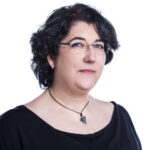
Elisa Ravagnan (PhD) is a senior environmental scientist with more than 20 years of experience in environmental modelling and statistics, inter- and cross-disciplinary approaches to environmental challenges. She has been leading and participating in many national and international projects and industry financed projects to assess environmental effects of man-made activities. She is co-leading the Nordic Centre of Excellence for Blue Bioeconomy SUREAQUA and coordinating the H2020 ASTRAL project.
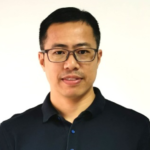
Changbo Zhu: Professor, chief scientist of Lab of Ecological Dynamics & Sustainable Aquaculture, South China Sea Fisheries Research Institute, Chinese Academy of Fishery Sciences. His major research interests include: 1) Ecological dynamics and carrying capacity of aquacultural system; 2) Sustainable aquaculture model and technology; 3) Inland saline-alkaline water aquaculture.
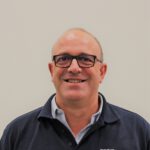
Luis Conceição is co-founder, CEO and R&D director at SPAROS Lda (www.sparos.pt). He obtained his MSc in Aquatic Sciences at ICBAS/Porto University (Portugal), MSc in Aquaculture and PhD in fish nutrition at Wageningen University (The Netherlands). Past positions as post-doc at SINTEF Aquaculture (Trondheim, Norway) and CCMAR / University of Algarve (Faro, Portugal). He has 20 years experience in coordinating R&D projects and PhD students in sustainable aquaculture and fish nutrition.
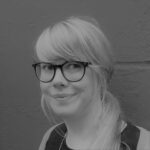
Cornelia Kreiss is a marine biologist by training and holds a PhD in the field of fish physiology (Alfred Wegener Institute, Bremerhaven, Germany). She combines her natural scientific background with her experience as certification manager for organic aquaculture (Ecocert IMO GmbH) within her current position as research associate for economic analyses of aquaculture production systems at the Thünen Institute in Bremerhaven, Germany (since 4.5 years). Her work focuses on economic and social dimensions of German aquaculture, international benchmarking of fish production systems and sustainable strategies of such systems including their (cost-benefit) analysis.
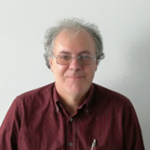
Roberto Pastres: born in Venice on May 15th 1962, PhD, is associate professor of Ecology at the Department of Environmental Sciences, Informatic and Statistic of the University of Venice Ca’ Foscari (Italy). Since 1987, his research activity has concerned the development of mathematical models for the simulation of biogeochemical and ecological processes in coastal and marine ecosystems, with a special focus on their application to the sustainable management of finfish and shellfish marine aquaculture. He has a large experience in time series analysis of water quality, biogeochemical and ecological data, mechanistic modelling, data assimilation, data fusion and design of monitoring networks. He has co-authored more than 60 papers on peer review international journals. He has participated to several EU projects and coordinated the FP7 project MEDINA (Marine Ecosystem Dynamics and Indicators for North Africa). At present, he is coordinating the H2020 project GAIN – Green Aquaculture INtensification in Europe (www.unive.it/gainh2020_eu). In 2014 he set up the SME “Bluefarm”, as a spin-off company of Ca’ Foscari University.
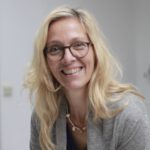
Gesche Krause is a social scientist, who works at the Alfred Wegener Institute Helmholtz Center for Polar and Marine Research (AWI), Germany. She was trained at the Universities of Kiel and Greifswald (Germany) and completed her PhD in Philosophy at the Department of Systems Ecology, Stockholm University (Sweden). Next to working for several years with various companies in the private sector, she worked for 10 years in Brazil along the Amazon as well as several years on ornamental trade dynamics and coastal governance issues in Indonesia. The socio-economic prospects of aquaculture, especially in combination with offshore renewable energy systems, have been a further research avenue since 2000. In 2013 she affiliated with the AWI in which her current research centers around the assessment of impact of science to societal processes and more specifically on the social and economic dimensions of marine aquaculture. She founded and chairs the International Commission of the Exploration of the Seas (ICES) expert working group on social and economic dimensions of aquaculture (WGSEDA). Since 2016, Gesche is part of the executive board of the global Oceans Past Initiative (OPI) and chairs the EU4Oceans WG “Food from the Ocean”.
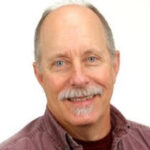
Jon Grant: Professor at the Department of Oceanography & NSERC-Cooke Industrial Research Chair in Sustainable Aquaculture – Dalhousie University (Canada). He has worked in aquaculture-environment interactions for 30 years. Working with both the shellfish and finfish farming industry, he has pioneered concepts for assessing carrying capacity in field culture. This work has led to rigorous application of ecosystem-based management, marine spatial planning, and epidemiological approaches to aquaculture, including incorporation of ocean technology, remote sensing and GIS. Jon led the development of the Aquaculture theme in the Ocean Frontier Institute, the largest marine science initiative in Canadian history. He has a BSc from Duke University and PhD from the University of South Carolina.
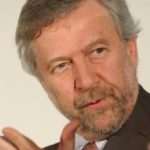
Patrick Sorgeloos obtained his PhD in marine biology in 1975 from Ghent University in Belgium. In 1978 he set up the Artemia Reference Center and in 1986 he became the first professor of aquaculture at Ghent University. Until his retirement as emeritus professor in 2013 over 250 Master (from > 50 countries) and 70 PhD alumni (from > 20 countries) graduated at Ghent University in the field of aquaculture. Patrick is a strong promoter of international networking in aquaculture and was/is involved with the World Aquaculture Society, the European Commission (DGs RTD, MARE, DEVCO, SANTE, TRADE) and the European Aquaculture Technology & Innovation Platform EATIP. He was involved in many cooperation projects in Europe, Asia, Latin America and Africa.In 1983 he was co-founder of the spin off company Artemia Systems that is now operating under the name of INVE Aquaculture and belongs to Benchmark HoldingHe received honorary awards in China, Egypt, Greece, India, Malaysia, Russia, Thailand, USA and Vietnam.
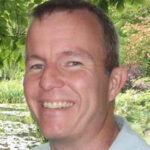
Anton Immink has more than 25 years’ experience of aquaculture sector development across Asia, Africa and Europe. He has worked with international organisations, governments, major seafood buyers and supply chain companies, but Anton is most passionate about the long-term involvement of smallholder farmers in value chains. He wants to find solutions for farmers and regulators to address the many challenges that aquaculture continues to face as the sector grows, including environmental management at farm and resource level, coordinated health control, sustainable and quality inputs, better use of data, and equitable access to innovation. Anton is supporting the establishment of a new NGO called ThinkAqua that will work with partners around the world to address these challenges.
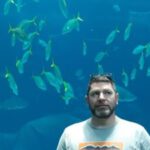
Frank Kane is a marine biologist working with Aquaculture Section of the Marine Institute in Ireland, having worked with the Institute since 2002. He has previous experience with the salmon farming and shellfish sectors. His areas of research include aquaculture and aquaculture management, integrated multi-trophic aquaculture and the development of novel and lower trophic species in aquaculture, sea lice management, and environmental monitoring. On behalf of the Marine Institute, he is currently coordinating the Horizon2020 IMPAQT project, which is looking to validate the concept of IMTA and to develop an intelligent management system for the managing of IMTA farms. This is a 3-year project which started in 2018.
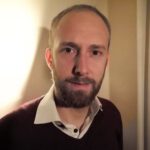
Edouard Royer worked in aerospace industry as a software developer, and then for the French space agency (CNES) as a technical conformity engineer, building risk assessment for European launch from French Guiana. He finally started to work as a data scientist in 2016 for Bluefarm Srl. He works since then with EO (Earth Observation) and in-situ data, environmental models, computer science and data processing algorithms, in order to create innovative services for fish and shellfish farmers. Within the GAIN project he is applying the precision fish farming approach to a trout farm pilot site situated in Preore, Italy. He is the leader of the GAIN professional development work package.
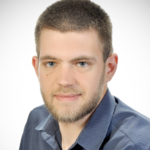
Piotr Eljasik, PhD student at the Faculty of Food Sciences and Fisheries (ZUT in Szczecin) with particular interest in the aquaculture, genetics, processing of common carp (Cyprinus carpio) meat and by-products. Moreover, he actively participated in two H2020 projects (GAIN SEAFOODTOMORROW) and the result of his activity is reflected in the publications (n=15) and high interest in development of seafood technologies and products for industry.
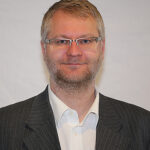
Hallstein Baarset: MSc industrial management (1994) from NTNU – Norwegian University of Science and Technology. BSc microelectronics from TIH – Trondheim College of Engineering (1992). Experience from research and development, product development, sales and management within aquaculture, pulp and paper, engineering, training, and consulting.
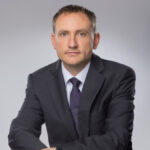
Remigiusz Panicz: Associate Professor at the Faculty of Food Sciences and Fisheries (ZUT in Szczecin, Poland). Remigiusz has over 15 years’ experience of research and development in freshwater aquaculture with emphasis on fish genetics, nutrition, physiology, diseases, and processing. Current interests deal with fish fortification, fish diseases streams and improving use of fish and invertebrate by-products. He has published ~50 peer reviewed publications and participated in several national, EU and PL-Asia projects as partner and/or national coordinator.
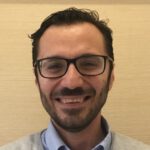
Alessio Bonaldo: Associate Professor at the Department of Veterinary Medical Sciences, University of Bologna, Italy. Alessio is a fish nutritionist dealing with innovative protein sources for aquaculture fish species and feeding strategies to improve fish gut health. Coordinator of the H2020 EU Project NewTechAqua www.newtechaqua.eu. Chair of the organizing committee of the XX International Symposium on Fish Nutrition and Feeding 6-10 June 2021, Sorrento, Italy http://www.isfnf2021.org
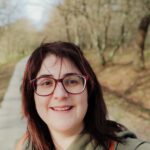
Leticia Regueiro Abelleira: Head of the Sustainability and Circular Economy research line, R&D&I Area in ANFACO-CECOPESCA. Leticia is a chemical engineer, with a PhD from the University of Santiago specialized in residues/byproducts valorisation, biorefinery processes and water treatment process. Leticia has been involved in several projects related to efficient waste and wastewater treatment and by-products valorization, such as LIFE STO3RE, NEPTUNUS, ALEHOOP or GAIN, and she has published more than 20 papers and she has participated in more than 25 conferences.
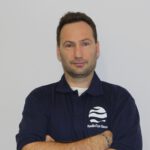
Tamás Bardócz: Research, Development and Innovation Director of AquaBioTech Group, iFishIENCi coordinator. He has been working in the aquaculture industry in various positions for 25 years. After working on freshwater fish farms as a technician and later as researcher, he worked in the Hungarian Fish Farmers’ Association as an aquaculture consultant. He also managed all fisheries and aquaculture related policy and regulatory developments in the Hungarian Ministry of Rural Development and represented Hungary in high level EU bodies. Since 2014 he manages international consultancy and R&D projects in AquaBioTech Group, Malta.
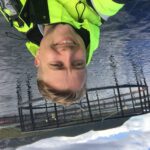
Wesley Malcorps is a PhD student at the Institute of Aquaculture (University of Stirling, UK) working on “Value Chain and Sustainability Assessments of European Aquaculture Value Chains”, as part of the GAIN (Green Aquaculture Intensification in Europe) project funded by European Union Horizon 2020. This project is designed to support the sustainable growth of European (EU+EEA) aquaculture. His main focus is the strategic utilization of fish by-products, life cycle assessment and value chain analysis. He finalized a Bachelor in Water Management / Aquatic Ecotechnology at the HZ University of Applied Sciences (Netherlands, 2015) and a MSc Sustainable Development – Environmental Change and Ecosystems at Utrecht University in 2017 (Netherlands). Additionally, he had professional roles in sustainability projects, became a PADI Divemaster and has over 10 years of experience as a salesman in fresh- and saltwater species in the ornamental fish trade.
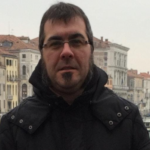
Xosé Antón Vázquez Álvarez: Tenured Scientist at the Marine Research Institute (IIM-CSIC) and leader of the Group of Recycling and Valorization of Waste Materials (REVAL). BSc and MSc in Biochemistry (University of Salamanca, 1996) and PhD in Chemical Engineering (University of Santiago de Compostela, 2001). He works in the development, optimization and scaling of sustainable processes and bioprocesses –under biorrefinery concept– directed to the valorization of by-products, discards and effluents generated by the fish food industry, including aquaculture and agrifood activities.
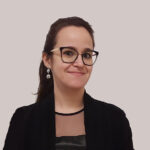
Silvia Maiolo (PhD) is a consultant at Perfect Food S.r.l., where she works on sustainability projects in the food sector, such as: fish, cattle and pig farming; feed for livestock and aquaculture; flour and pasta; recovery and valorisation of surplus food.Previously, her research path at the Ca ‘Foscari University of Venice strengthen her skills in the field of environmental sustainability and above all in the LCA methodology, with case studies in the aquaculture/fishery sector and then in insects breeding and microalgae cultivation. Going back in time, she obtained a MS in Management of Faunistic and Environmental Resources thanks to a research project about salmon’s diet in captivity, carried out at the Norwegian Institute of Marine Research (IMR).
Fearghal O’Donncha – IBM
Richard Newton – University of Stirling
Joao G. Ferreira – Longline Environment
Christian Bruckner – SHP
